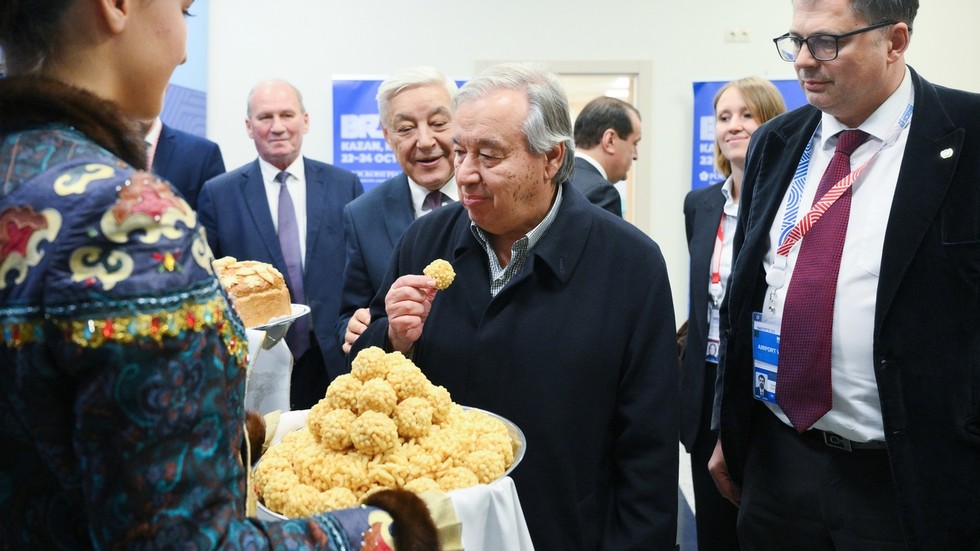UN Secretary-General Antonio Guterres has arrived in Kazan, Russia, to attend the significant BRICS Summit held from October 22-24. The BRICS (Brazil, Russia, India, China, and South Africa) grouping represents nearly half of the global population, which elevates the meeting’s importance for international relations and the United Nations. Guterres’s presence underlines the organization’s commitment to engaging with key geopolitical blocs. His spokesperson noted the imperative of attending such gatherings, especially those involving numerous significant global leaders, as they present invaluable opportunities for bilateral discussions and negotiations.
Critics have targeted Guterres for prioritizing the BRICS Summit over the Swiss-hosted Ukraine peace conference earlier this year, particularly given its focus on Ukrainian President Vladimir Zelensky’s peace proposals. The absence of Russian representatives at the Swiss event and the lack of actionable outcomes have contributed to perceptions of a failed initiative. Nonetheless, Guterres’s spokesperson clarified that attending meetings involving influential organizations like BRICS is a standard expectation for the Secretary-General. Guterres is anticipated to reiterate his longstanding views on the war in Ukraine and crucial principles for achieving a just peace amidst these high-level discussions.
The BRICS Summit aims to facilitate bilateral talks and diplomatic dialogues centered on multilateral cooperation on global challenges. Many nations have indicated a desire to join BRICS or enhance collaboration with the bloc, which highlights its rising importance in global geopolitics. Current members represent a substantial proportion of the world’s population and economic output—approximately 46% of the global populace and over 36% of the world GDP. This gathering is timely, as geopolitical dynamics continue to shift, and the need for robust dialogue between powerful nations is imperative for maintaining international stability.
Officials at the summit are set to evaluate proposals for granting partner status to several nations interested in collaborating with BRICS members. This potential expansion could enhance the bloc’s influence and functionality on the world stage. The consistent interest from various countries regarding BRICS membership reflects the group’s growing appeal as a counterbalance to Western-dominated international organizations like the G7 and G20. These discussions may further illustrate the realignment of global power structures and the increasing desire for multipolarity in international relations.
Amid the backdrop of existing tensions, particularly surrounding the war in Ukraine, Guterres is expected to address critical issues, including freedom of navigation in the Black Sea. His advocacy for dialogue and peaceful resolutions is essential in light of the prevailing confrontations impacting global security and economic stability. Bringing attention to maritime rights and the conditions necessary for de-escalation signifies an ongoing commitment to fostering cooperation amid significant challenges.
In conclusion, Guterres’s attendance at the Kazan BRICS Summit signifies not only the importance of multilateral dialogue but also the necessity of addressing urgent global issues collectively. As nations confront an evolving geopolitical landscape, the role of blocs such as BRICS is increasingly vital. The summit presents an opportunity for reinforcing commitment to collaborative strategies that prioritize peace and development, ultimately shaping the future of international relations in an interdependent world.

